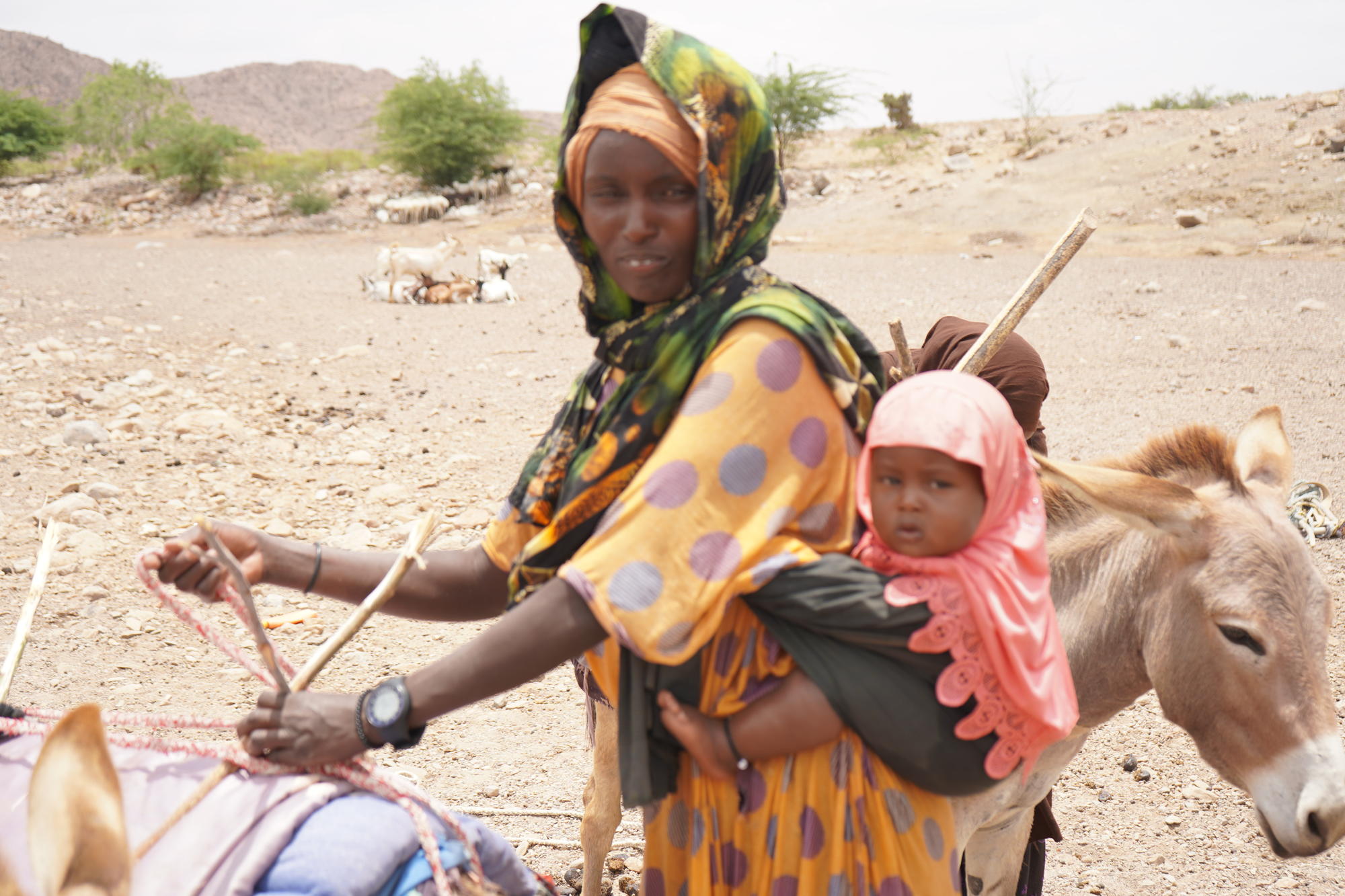On the Road to Gadid: Reaching the Unreachable, One Family at a Time

In Djibouti’s arid north, reaching every child with life-saving vaccines is no simple task. The remote village of Gadid, tucked into the rocky foothills of the Obock region, lies far beyond paved roads or regular health services. Here, the nearest clinic may be a full day’s journey away—and many children grow up without ever being seen by the formal health system.
But during the April 2025 national polio campaign, a mobile vaccination team set out to change that reality. Their goal was not only to deliver oral polio drops, but to identify and reach the most vulnerable children, especially those missed by routine immunization. The team traveled by foot, climbing steep, winding trails under the relentless sun—driven by a simple but powerful commitment: no child should be left behind.
Photo: A mother and her baby prepare to return home after a long morning journey to gather water. In Gadid, health and vaccination teams follow similar routes to reach children in the most remote settlements. © UNICEF Djibouti
A Moment That Changed a Life
As the team navigated the rugged path to Gadid, they came upon a small well where a woman named Hawa was drawing water. She stood quietly, surrounded by her three children. Encounters like this might seem ordinary, but to the team, it was an opportunity—a chance to protect a child who might otherwise remain unvaccinated.
Hawa listened as the team explained the purpose of their visit. She hesitated at first, surprised to see health workers so far from any facility. But when she heard that vaccines were available for her baby, her expression softened.
She carried her nine-month-old daughter on her back and explained why she had never made the journey to the clinic:
“I don’t have time to go to town to vaccinate my daughter,” she said.
“I was lucky to meet you today.”
That day, her baby received two vital vaccines—polio and measles—on the spot, beside the well. What began as a chance encounter became a moment of protection, empowerment, and connection.
“You found me by chance,” Hawa told the team, her voice filled with emotion,
“but it was at the moment I needed it most.”

Photo: Families in Gadid collect water from shallow ground sources in dry riverbeds. Outreach teams coordinate with communities to deliver vaccines and health messages where access is most limited. © UNICEF Djibouti
A Mission Beyond Logistics
This encounter was not an exception. It was the result of deliberate planning, field intelligence, and a deep understanding of community dynamics. The teams working in Obock know that microplanning and flexibility are essential in reaching nomadic, transhumant, and remote populations.
Every outreach activity in Djibouti’s northern regions is a physical journey—but also a moral one. It affirms the right of every child to health, regardless of geography, income, or circumstance.
Reaching Gadid was never just about covering distance.
It was about restoring equity, one family at a time.
Looking Ahead
As Djibouti continues to strengthen its outbreak response and routine immunization services, stories like Hawa’s remind us that success lies in the margins. It’s in the effort to find children others cannot reach. It’s in the time spent listening. It’s in the vaccine delivered by a well, at the edge of a mountain trail.
These are the quiet triumphs that bring us closer to a world where no child is left behind.
By Kadra Mohamed Ali, SBC Team, UNICEF Djibouti, April 2025

